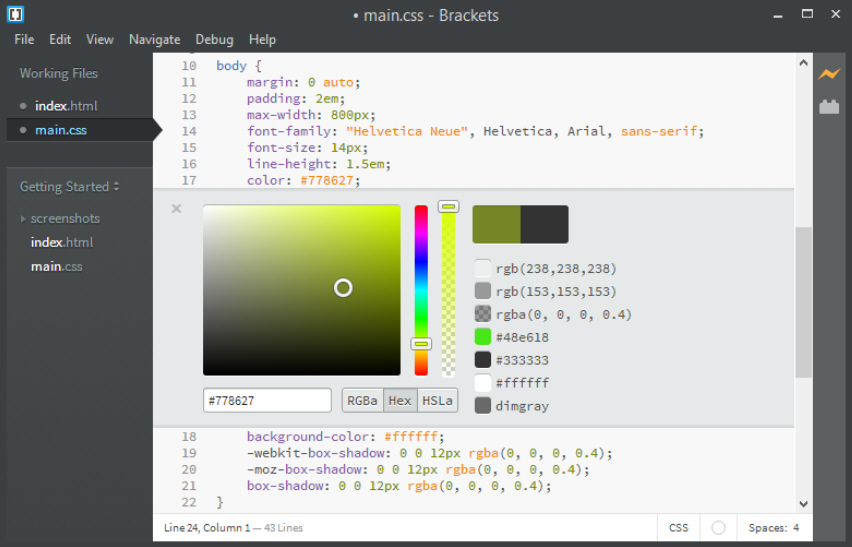Adobe Brackets is a powerful source code editor for the web

If you’ve tried more than your share of source code editors, then Brackets probably won’t make much of a first impression. It may have been launched by Adobe in 2012, but this open-source tool still looks a little basic, not something you’d want to use for serious work.
Actually try the program, though, and you’ll soon feel very differently. It’s very much a work-in-progress (the project is still only at version 0.34), but already Brackets is proving to be a capable editor with some very interesting features.
There’s plenty of code hinting-type power. Just start typing and Brackets displays matching HTML, CSS or JavaScript, helping you enter code quickly and without mistakes. This even works with your own functions: type the name and it’ll (usually) remind you of the names and types of whatever arguments you need.
As your code gets lengthier, so Brackets helps to speed up navigation. Click in an HTML tag name, a class or ID attribute, choose the Quick Edit option, and any relevant rules appear in an inline editor. You get to see and tweak CSS code as required, without having to manually switch between files.
Click the Live Preview button on the sidebar and life gets even easier. If you’ve installed Chrome then it pops up to render the current page, and this preview display is then updated in real time, as you edit your HTML and CSS. It’s all very smooth, no messy screen refreshes required, and great for providing immediate feedback on your ideas.
The program includes plenty of other essential features. Hover your mouse over an image, color or gradient, and a preview appears; WebPlatform.org-sourced documentation is available on CSS properties and values; there are "Find", "Find in files" and "Replace" tools, all with regular expression support.
What’s really surprising, though, is that Brackets is written in JavaScript, CSS and HTML. This makes the program interesting in itself, just as a practical example of how to build an advanced JavaScript editor. But it also means it’s relatively easy to customize it, and there are already a host of add-ons to extend Brackets even further (notably Theseus, a JavaScript debugger for Node.js and Chrome).
This is still very much a preview edition, and there are various bugs and oddities to be found. But these don’t get in the way of its core functionality; Brackets is already a very good source code editor, and from what we’ve seen it’s only going to get better from here.
